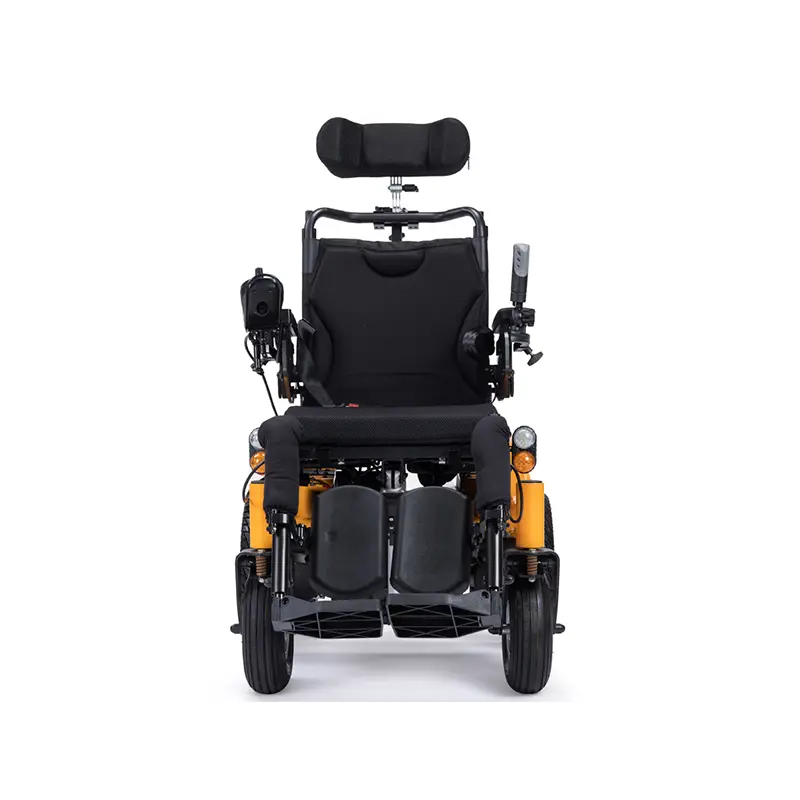Electric wheelchair exports to Spain: Market analysis with both opportunities and challenges
I. Overview of the Spanish electric wheelchair market
As one of the important economies in Europe, Spain’s demand for electric wheelchairs has shown a steady growth trend. According to relevant market analysis reports, the Spanish electric wheelchair market has maintained a relatively stable growth in the past few years. This growth trend is mainly due to Spain’s growing aging population and people’s pursuit of quality of life and convenience. With the development of society, more and more elderly people and people with limited mobility have begun to rely on electric wheelchairs to improve their autonomy and convenience in life.
II. Demand characteristics of the Spanish market
(I) Product function requirements
Spanish consumers have high requirements for the functions of electric wheelchairs. In addition to basic mobility functions, they also expect products to have some advanced functions, such as adjustable seats, foldable designs, longer cruising range and intelligent control systems. These functions can not only improve the user’s comfort, but also facilitate their use in different environments.
(II) Product quality and safety
The Spanish market attaches great importance to product quality and safety. As a medical device, electric wheelchairs must comply with strict EU standards, such as the EN 12184 standard. This standard sets clear requirements for the performance, safety and reliability of electric wheelchairs. Therefore, companies need to ensure that their products pass relevant certifications to meet the entry conditions of the Spanish market.
(III) Price sensitivity
Although Spanish consumers have high requirements for product quality and function, they are also more sensitive to price. Therefore, companies need to comprehensively consider the cost, function, brand value and market competition of the product when setting prices to formulate a reasonable pricing strategy.
III. Spanish import regulations and certification requirements
(I) CE certification
To export electric wheelchairs to Spain, CE certification must be passed. CE certification is a pass to enter the EU market, proving that the product complies with the relevant directives and standards of the EU. For electric wheelchairs, it mainly needs to comply with the EN 12184 standard, which covers mechanical safety, electrical safety, performance requirements and other aspects of electric wheelchairs.
(II) Other regulations
In addition to CE certification, companies also need to understand and comply with other relevant laws and regulations in Spain, such as import tariff policies, value-added tax regulations, etc. These regulations may have an impact on the cost and price of products, so companies need to prepare in advance.
IV. Market competition pattern
(I) Main competitors
In the Spanish electric wheelchair market, the main competitors include some internationally renowned brands, such as Invacare, Drive Medical, etc. These brands have certain advantages in product quality, function and brand awareness. In addition, some local brands also occupy a certain share in the market.
(II) Competitive advantages
Chinese electric wheelchair companies have certain competitive advantages in the Spanish market. First, Chinese companies have advantages in production costs and can provide more cost-effective products. Secondly, Chinese companies continue to improve in technology research and development and production processes, and product quality and performance have been effectively improved. In addition, Chinese companies can also meet the special needs of Spanish customers by providing customized services.
V. Marketing strategy
(I) Online promotion
With the development of the Internet, online promotion has become an important means for companies to enter the international market. Companies can display product information, brand stories and customer cases by establishing official websites and social media accounts. In addition, brand awareness and product exposure can be improved through search engine optimization (SEO) and online advertising.
(II) Offline promotion
Offline promotion is equally important. Enterprises can participate in medical equipment exhibitions, industry seminars and other activities in Spain and Europe to communicate face-to-face with potential customers. In addition, they can also cooperate with local distributors and agents to establish sales channels and increase the market coverage of products.
VI. Logistics and after-sales service
(I) Logistics
The logistics transportation of electric wheelchairs needs to consider factors such as product volume, weight and safety. Enterprises can choose to cooperate with professional logistics companies to ensure the safe transportation of products. In addition, transportation costs can be reduced by optimizing packaging design.
(II) After-sales service
High-quality after-sales service is the key to improving customer satisfaction and loyalty. Enterprises can establish a complete after-sales service system to provide product repair, maintenance, technical support and other services. In addition, the efficiency and quality of after-sales service can be improved by training local technicians.
VII. Future development trends and opportunities
(I) Market growth trend
With the intensification of the aging problem in Spain and people’s pursuit of quality of life, the electric wheelchair market is expected to continue to maintain steady growth. In addition, technological advances will also promote the development of the electric wheelchair industry, such as intelligent control technology and battery technology.
(II) Opportunities
Chinese electric wheelchair companies can further expand the Spanish market through technological innovation, product upgrades, and brand building. In addition, they can also achieve resource sharing and complementary advantages through cooperation with local companies.
VIII. Conclusion
The Spanish electric wheelchair market has broad prospects and opportunities, but it also faces fierce competition and strict regulatory requirements. Companies need to have a deep understanding of market characteristics and needs, formulate reasonable market strategies, ensure product quality and safety, and provide high-quality after-sales services in order to succeed in the Spanish market.
Post time: Jul-16-2025


